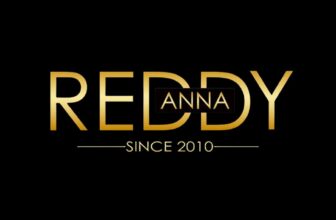
In the fast-paced and ever-evolving music industry, where artists and musicians create content for global audiences, one of the most crucial actions an artist can take is ensuring their work is protected. As a musician, you put your heart, soul, and countless hours into creating a song that is uniquely yours, but what happens if someone else decides to copy, distribute, or profit from your music without your permission? The answer lies in copyright protection.
Understanding how to get your song copyrighted is not just a bureaucratic formality — it’s a pivotal step in safeguarding your intellectual property and ensuring your creative work is legally protected. Copyright gives you the exclusive rights to your song, preventing others from using, reproducing, or selling it without your consent. Whether you’re an emerging artist or a seasoned professional, learning how to register your songs for copyright protection is essential for ensuring that your work remains yours. This guide walks you through each critical step, explaining the copyright process in a simple, easy-to-follow way that can help you safeguard your music from unauthorized use.
1. Understanding Copyright Law and Music
Before diving into the registration process, it’s essential to understand what copyright law covers and how it applies to music. Copyright protection in the United States (and many other countries) automatically exists as soon as a song is created and “fixed” in a tangible form, such as a recording or a written musical composition. This means that the moment you record your song or write down the sheet music, you technically own the copyright to it. However, while copyright is automatically granted, it is advisable to officially register your work through the U.S. Copyright Office or a similar governing body to ensure full legal protection.
Copyrighting your song ensures that you have exclusive rights to reproduce, distribute, perform, and create derivative works based on your song. Additionally, should any legal disputes arise, an officially registered copyright will serve as concrete proof that you own the work, making it significantly easier to defend your rights in court.
2. The Importance of Official Copyright Registration
Even though copyright is automatic upon creation, formally registering your song with the U.S. Copyright Office offers several advantages. First and foremost, registration provides you with a legal document that proves ownership of your work. In case of any disputes over ownership or unauthorized use, this certificate becomes invaluable evidence. Moreover, registration allows you to seek statutory damages and attorney’s fees in a lawsuit. Without registration, you are only entitled to actual damages and lost profits, which may be harder to prove and often result in smaller compensation.
For artists planning to commercially release their music or make it available online, taking the extra step to officially register a copyright is crucial. Whether you’re releasing a single on streaming platforms like Spotify, uploading your music on YouTube, or distributing your album on physical media, having registered copyright protection will help you defend your work against unauthorized use globally.
3. How to Get Your Song Copyrighted: A Step-by-Step Guide
Now that you understand the importance of copyright registration, here’s a detailed guide on how to get your song copyrighted:
- Prepare Your Song: First, ensure that your song is fixed in a tangible form. This could be a sound recording (like an MP3 or WAV file), or a written musical composition (like sheet music). If your song is part of an album, consider whether you want to copyright each song individually or copyright the album as a collective work.
- Visit the U.S. Copyright Office Website: Go to the official website of the U.S. Copyright Office (www.copyright.gov) and create an account if you don’t already have one. The website offers an eCO (Electronic Copyright Office) system where you can submit your works digitally.
- Choose the Correct Form: For musical works, you will typically use one of two forms:
- Form SR (Sound Recording): Use this if you are registering a sound recording, such as a specific recorded performance of your song.
- Form PA (Performing Arts): Use this form to register the underlying musical composition, which includes both the music and lyrics.
- Fill Out the Application: The application will ask for details about your song, including the title, the year it was created, and the names of any co-authors or co-composers. It’s important to provide accurate information to avoid complications later.
- Submit Your Song: You will need to upload a copy of your song (either an audio file or written sheet music) as part of your application. If you’re mailing a physical copy, be sure to follow the instructions on the website for submission.
- Pay the Fee: As of 2024, the cost to register a single song through the eCO system is $45. This fee may vary slightly depending on whether you’re registering multiple works or filing as part of a collection.
- Receive Confirmation: After submitting your application and payment, you will receive a confirmation email. The Copyright Office will process your registration, which may take several months, but once completed, you will receive an official certificate of registration.
4. Additional Considerations: Timing and International Protection
While you may be eager to release your music as soon as it’s completed, it’s wise to file for copyright registration before making your song publicly available. This can prevent any unauthorized uses from happening in the first place. Additionally, while copyright registration in the U.S. covers you domestically, you should also look into international copyright protections if your song is likely to be distributed or performed abroad. Various international treaties, like the Berne Convention, offer a level of copyright protection across participating countries, making it easier to protect your music globally.
Conclusion:
In a world where music is shared, streamed, and downloaded across countless platforms, understanding how to get your song copyrighted is a critical skill for any musician. Copyrighting your song is a straightforward process that offers immense protection against unauthorized use, copying, or distribution. It ensures that your hard work remains yours, giving you the legal right to control how it is used and to profit from it. Moreover, with a registered copyright, you gain peace of mind knowing that your music is protected not just today but for many years to come.
If you’re serious about your music career, there’s no time to delay. By following the steps outlined above, you can easily secure your song’s copyright and safeguard your creative rights. Don’t let your music go unprotected — start the copyright process today and ensure that your musical legacy remains in your hands.







